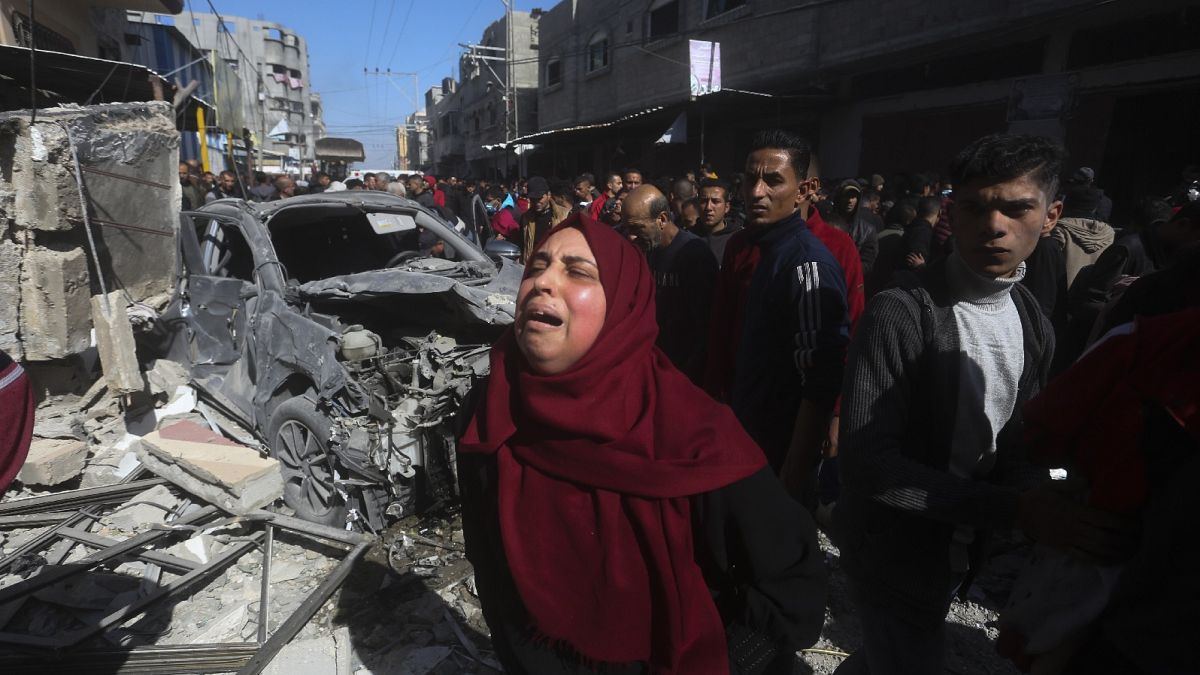One in six children in northern Gaza is “severely malnourished”, the UN agency highlighted.
The UN’s agency for Palestinian refugees was last able to deliver food into northern Gaza over a month ago, UNRWA Commissioner-General warned on Sunday, calling for food aid to be allowed into the area on a regular basis.
“The last time UNRWA was able to deliver food aid to northern Gaza was on 23 January,” Philippe Lazzarini wrote on X, formerly Twitter.
“Our calls to send food aid have been denied & have fallen on deaf ears. This is a man made disaster.”
“Famine can still be avoided, through genuine political will to grant access & protection to meaningful assistance. The days to come will once again test our common humanity and values,” he added.
According to the UN agency, one in six children in northern Gaza are “severely malnourished.”
The World Food Programme, another UN agency, announced on Tuesday that it was also forced to pause deliveries of food in northern Gaza “until the conditions are in place that allow for safe distributions.”
It had only restarted deliveries three days prior following a three-week suspension prompted by a “strike on an UNRWA truck and due to the absence of a functioning humanitarian notification system,” it said in a statement.
Vital supplies to the area has been able to be delivered on a more ad-hoc basis. The UK and Jordan air-dropped four tonnes of aid including essential medicines, fuel and food for patients and staff to a hospital in northern Gaza on Tuesday.
Temporary ceasefire agreement in the works
The latest UNRWA warning comes as Israeli Prime Minister Benjamin Netanyahu said Sunday that a military offensive in the southernmost city of Rafah, where more than half of Gaza’s 2.3 million population is sheltering, could be “delayed somewhat” if a deal for a weekslong cease-fire between Israel and Hamas is reached.
He nonetheless said that total victory in Gaza is “weeks away” once the offensive begins.
Israeli media reported that mediators were making progress on an agreement for a ceasefire and release of dozens of hostages held in Gaza as well as Palestinians imprisoned by Israel. Several Israeli media outlets, citing unnamed officials, said the War Cabinet tacitly approved it.
Talks resumed on Sunday in Qatar at the specialist level, Egypt’s state-run Al Qahera TV reported, citing an Egyptian official as saying further discussions would follow in Cairo with the aim of achieving the cease-fire and release.
A senior official from Egypt, which along with Qatar is a mediator between Israel and Hamas, has said the draft cease-fire deal includes the release of up to 40 women and older hostages in return for up to 300 Palestinian prisoners, mostly women, minors and older people.
The official, speaking on condition of anonymity to discuss the negotiations, said the proposed six-week pause in fighting would include allowing hundreds of trucks to bring desperately needed aid into Gaza every day, including the north. He said both sides agreed to continue negotiations during the pause for further releases and a permanent cease-fire.
Negotiators face an unofficial deadline of the start of the Muslim holy month of Ramadan around March 10, a period that often sees heightened Israeli-Palestinian tensions.
The war, launched by Israel in response to the Oct. 7 attacks by the Hamas militant group in which 1,200 Israelis were killed and a further 250 were taken hostage, has claimed the lives of 29,692 Palestinians, two-thirds of them women and children, according to the Hamas-run health ministry in Gaza.
It has also devastated Gaza’s health sector. Less than half of hospitals even partially function.
At the Emirates Hospital in Rafah, three to four newborns are placed in each of its 20 incubators, which are designed for just one.
Dr. Amal Ismail said two to three newborns die in a single shift, in part because many families live in tents in rainy, cold weather. Before the war, one or two newborns in incubators there died per month.
“No matter how much we work with them, it is all wasted,” she said. “Health conditions in tents are very bad.”



















Discussion about this post